
Klaus Schulze was a German electronic music pioneer, composer and musician. He also used the alias Richard Wahnfried and was a member of the Krautrock bands Tangerine Dream, Ash Ra Tempel, and the Cosmic Jokers before launching a solo career consisting of more than 60 albums released across six decades.

The Dome Event is the twenty-sixth album by Klaus Schulze. It was originally released in 1993. This is the fifth of seven early-1990s Klaus Schulze albums not to be reissued by Revisited Records.

X is the tenth album by Klaus Schulze. It was originally released in 1978, and in 2005 was the fifth Schulze album reissued by Revisited Records.

Timewind is the fifth album by Klaus Schulze. It was originally released in 1975, and in 2006 was the twenty-second Schulze album reissued by Revisited Records. It is Schulze's first solo album to use a sequencer.

Moondawn is the sixth album by Klaus Schulze. It was originally released in 1976, and in 2005 was the thirteenth Schulze album reissued by Revisited Records. Moondawn is Schulze's first album that was performed in a full Berlin School style, as well as his first to feature contributions from drummer Harald Grosskopf.

Irrlicht is the first album by Klaus Schulze. Originally released in 1972, in 2006 it was the sixteenth Schulze album reissued by Revisited Records as part of a series of Schulze album reissues. Recorded without synthesizers, Irrlicht's set of "early organ drone experiments" is "not exactly the music for which KS got famous".
Silent Running is a 1972 science fiction film. There was also a novelization with the same title.

Cyborg is the second album by Klaus Schulze. It was originally released in 1973, and in 2006 was the nineteenth Schulze album reissued by Revisited Records.

Blackdance is the third album by Klaus Schulze. It was originally released in 1974, and in 2007 was the twenty-fifth Schulze album reissued by Revisited Records. For the first time Schulze uses "real" synthesizers and a singer. "Voices of Syn" features Ernst Walter Siemon on vocals. Due to packaging and print errors on later releases, Blackdance was considered Schulze's fourth album for decades, until Klaus D. Müller, Schulze's biographer and publicity manager, discovered from searching through his personal diaries that Picture Music, thought to be the third album, was recorded after Blackdance. Despite this, the reissue labels Blackdance as Schulze's fourth album.

Picture Music is the fourth album of electronic music by German musician Klaus Schulze. It was recorded in late 1974 and released in January 1975 on Brain Records. In 2005 this was the second Schulze album reissued by Revisited Records. This is the only Klaus Schulze solo album in which he can be heard playing a drum kit. Prior to his solo career, he was the drummer for Ash Ra Tempel; on his later albums, drummer Harald Großkopf of Wallenstein frequently contributed. Like many of his albums, this one has one long track on each side.

Audentity is the fifteenth album by Klaus Schulze. It was originally released in 1983, and in 2005 was the eleventh Schulze album reissued by Revisited Records. The reissue of Audentity is one of two instances of a Klaus Schulze reissue featuring a track order changed from that of the original release.

Mirage is the eighth album by Klaus Schulze. It was originally released in 1977, and in 2005, was the first Schulze album reissued by Revisited Records. Mirage is subtitled "Eine elektronische Winterlandschaft" and is dedicated to Hans Dieter Schulze.
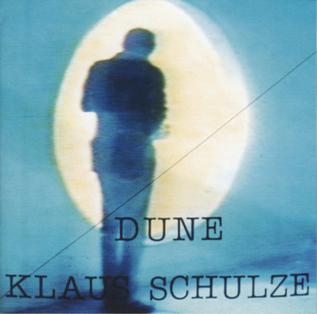
Dune is the eleventh album by Klaus Schulze. It was originally released in 1979, and in 2005 was the tenth Schulze album reissued by Revisited Records. "Shadows of Ignorance" features Arthur Brown on vocals, half-singing/half-chanting a long poem written by Schulze.
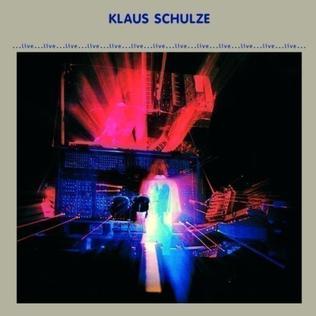
...Live... is the twelfth album by Klaus Schulze. It was originally released in 1980, and in 2007 was the twenty-sixth Schulze album reissued by Revisited Records. The album contains recordings from concerts in Berlin in 1976, and Amsterdam and Paris in 1979. The CD version of "Sense" has been extended from the original LP and now includes a lengthy introduction which did not feature in the original release. "Dymagic" includes a vocal performance by Arthur Brown, similar to the one found on Dune, the last studio album before the tour.

Dziękuję Poland Live '83 is the sixteenth album by Klaus Schulze. It was originally released in 1983, and in 2006 was the seventeenth Schulze album reissued by Revisited Records. "Katowice" is essentially a live version of "Spielglocken" from Audentity. "Lodz" is essentially a live version of "Ludwig II von Bayern" from X. "Dzien dobry!" is an alternate take of "Katowice"/"Spielglocken".
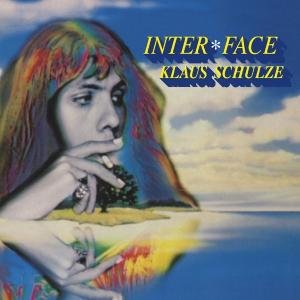
Inter*Face is the eighteenth album by Klaus Schulze. It was originally released in 1985, and in 2006 was the twentieth Schulze album reissued by Revisited Records. The two bonus tracks on the reissue were both previously released on Schulze's 25-disc CD box set Jubilee Edition (1997), which was later included on the 50-disc CD box set The Ultimate Edition (2000). However, a shorter version of "Nichtarische Arie" was included.

Dreams is the nineteenth album by Klaus Schulze. It was released in 1986, and in 2005 was the third Schulze album reissued by Revisited Records. The reissue bonus track was released early 2004 in Hambühren as a limited promo CD Ion.

Le Moulin de Daudet is the twenty-seventh album by Klaus Schulze. It was originally released in 1994, and in 2005 was the fourth Schulze album reissued by Revisited Records. Le Moulin de Daudet was released after Schulze's Silver Edition 10-disc CD box set, technically making this album his thirty-seventh. It is the soundtrack to the film of the same name. The reissue bonus track is an excerpt from the previously released limited promo CD Ion (2004).
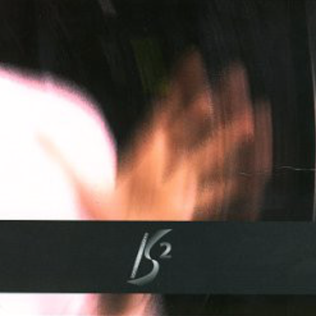
Contemporary Works II is a limited edition 5-disc CD box set released by Klaus Schulze in 2002 containing new studio material. This set was released two years after Contemporary Works I. One of the discs has been reissued in 2008 as part of the overall reissue program of Schulze back catalog by Revisited Records, the remaining four were released by MIG Music between 2016 and 2019. The first 333 copies of this set contained a bonus sixth disc.
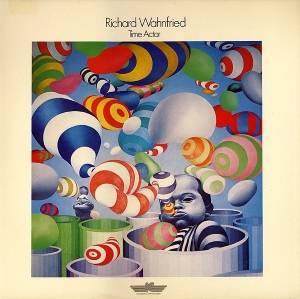
Time Actor is the first album by Klaus Schulze released under the name of Richard Wahnfried. It was originally released in 1979, and was not reissued by Revisited Records as part of the overall reissue program of Schulze albums. A reissue was released in July 2011 by Esoteric Records.



















